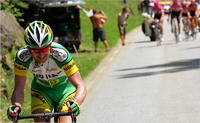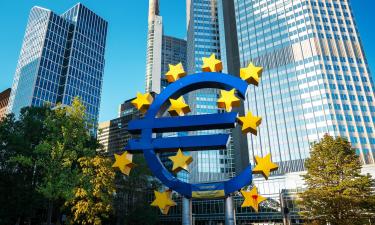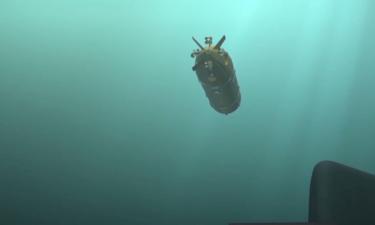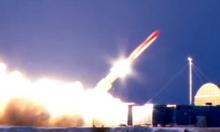Doping allegations can tarnish sponsor's reputation
Not many big-time bankers get as excited by cycling as Piet van Schijndel. Then again, he has millions of dollars in sponsorship riding on races such as the Tour de France.

Perhaps Van Schijndel's best moment came one hot July afternoon during this past year's Tour when Michael Rasmussen zipped up his yellow jersey and crossed the finish of the 16th stage, arms outstretched, with "Rabobank" emblazoned on his chest.
The Dane had won the Tour's toughest Pyrenees stage for Rabobank - one of the biggest banks in the Netherlands - and appeared to have a lock on the title.
For any sponsor, this was gold dust. But this time, it turned out to be fool's gold.
"I saw him win the stage on the Aubisque mountain at 5 p.m., then at 8 p.m., I got this call," said Van Schijndel, an executive board member of Rabobank.
In what Van Schijndel called a "nightmare," Rabobank pulled Rasmussen out of the Tour for lying about his whereabouts to avoid doping tests. Things got worse a few days later when rumors surfaced that a team leader was also involved.
"I got really scared. I thought they might be colluding and, at that point, the whole issue of sponsorship was at stake," Van Schijndel said.
Rabobank immediately ordered an inquiry, which found that Rasmussen acted on his own without team involvement. He was fired and Rabobank emerged with its reputation intact.
"We employ 50,000 people. Everybody knows here that if you put your hands in the till and take a euro, you are gone," Van Schijndel said.
In cycling, doping allegations can instantly tarnish a sponsor's reputation - and make it difficult to draw new multinational companies into the sport.
Because of the doping scandals, the cost of sponsoring a cycling team has leveled off in the past two years at an annual average of about 8 million EUR(US$11.75 million).
Deutsche Telekom, the main sponsor of the T-Mobile team and a leading sports sponsor in Europe, last month ended its 16-year involvement in cycling because of a series of doping cases. Audi and Adidas also dropped their team, which will now compete as Team High Road, named for the company owned by its manager, Bob Stapleton.
Wim Lagae, a professor in sports marketing at Leuven University in Belgium, said cycling is not alone in facing sponsorship problems and that, as risks go, it remains an attractive niche.
"There are a lot worse deals to be had," Lagae said. But "in bad times ... there is this immediate overshoot, and you end up in crisis communication."
On the plus side, any cycling sponsor gets major and immediate exposure since the brand name is the team name. Exposure is huge in key European markets almost throughout the year, and around the globe when the Tour de France rolls around in July. It's also cheaper than soccer, where sponsorship can cost more than twice as much.
In Formula One, secondary sponsorship of a car plus advertising atseveraltracks could quickly run up to 100 million EUR(US$145 million), Lagae said.
The Quick Step team, which has world champion Paolo Bettini, has had its brushes with individual doping scandals, including that of former world champion Johan Museeuw, but so far the company's 8 million EUR(US$11.75 million) budget has been worth it, Quick Step sponsor manager Philiep Caryn said.
"As a business analysis, (cycling) is still interesting," he said.
His team will be heading to the Tour of California early next year - sports marketing heaven for the multinational flooring laminate company.
"The hospitality programs have already been sold out," Caryn said. "The sport has great potential in the United States because the VIP programs meet a demand - be close to the champion."
Despite such an assessment, the Quick Step team is having major problems attracting a co-sponsor for about 3.5 million EUR(US$5.15 million). One pulled out at the last moment when a local newspaper leveled doping accusations against the team.
"We've been looking for a while and, every time, it gets down to the same (issue)," Caryn said.
When Discovery Channel decided to end its sponsorship of Lance Armstrong's former team this year, team leader Johan Bruyneel had a full replacement company lined up. But it, too, pulled out at the last minute because of doping scandals.
Surprisingly, Bruyneel ended up with Astana, which had been forced to withdraw from the 2007 Tour de France following a doping scandal in which Alexandre Vinokourov tested positive for a banned blood transfusion.
Astana, funded by a half dozen Kazakh state companies, decided to stay and called on the experienced Bruyneel to revamp the team and impose tough anti-doping policies. It plans to keep its 12.5 million EUR(US$18.3 million) annual budget through 2010, and spent heavily to sign former Discovery riders Alberto Contador, the 2007 Tour champion, and American Levi Leipheimer, who finished third in the Tour.
"After all that happened, the image was not that great," team spokesman Philippe Maertens. "But they did not want to run off like a thief in the night. That does not achieve anything either."
It makes the 2008 season all the more crucial for the future of professional cycling - if doping stays in the news its downward spiral might become irreversible.
"It will be the time of truth," said Van Schijndel, whose bank is committed at least through 2012. "If it doesn't get better and we get more incidents, it will be looking very bleak. One after the other will drop out."
Caryn agreed.
"If we continue like this for two more years, it will be almost hopeless to pull another multinational in," he said.
Lagae, however, sees it as a time of opportunity, much as a savvy investor buys when stocks are down.
"For a smart company, this is the time to get in," he said.
Subscribe to Pravda.Ru Telegram channel, Facebook, RSS!





